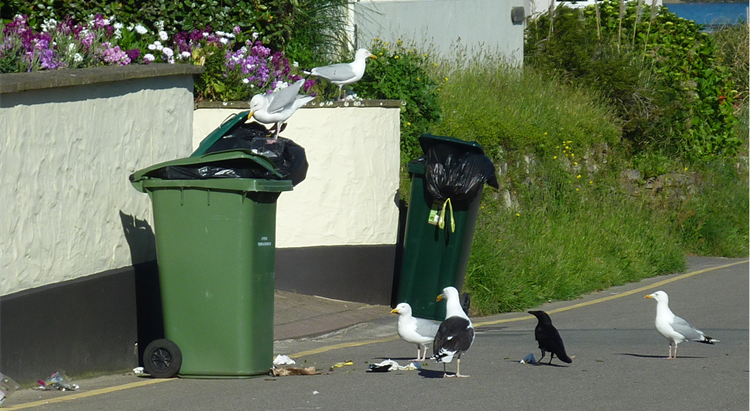13 March 2018

Changes to a Jersey law to try to reduce problems with seagulls and other wild birds are now in place.
The law change should discourage people from feeding seagulls and other wild animals which can cause problems for people living nearby.
Under the Statutory Nuisances (Jersey) Regulations 2017, it’s against the law to feed wild birds or other creatures in a way that means they become a nuisance or harmful to health. Some birds and rodents carry diseases which can be harmful to human health.
Gulls are beginning to build their nests and are attracted to places with easily available food. Seagulls are protected under the Jersey wildlife law and can only be moved by licenced pest controllers.
The Department of the Environment and the Jersey Society for the Prevention of Cruelty to Animals (JSPCA) Animals’ Shelter advise the best solution is to take steps to avoid gulls nesting on roofs in the first place. If they do nest, householders should call in pest controllers to tackle the problem early, rather than in May or June when eggs or chicks are in the nest.
Feed wintering birds
Director of Environmental Health, Stewart Petrie said “We get a lot of calls from householders and businesses fed up with the noise, damage from faeces, building damage, spread of disease and other concerns that could be avoided. We definitely don’t want to discourage people from feeding wintering birds, but it’s important to do it in a way that doesn’t attract feral chickens, cockerels, pigeons, rats, mice and seagulls.
“If people stop feeding gulls and we limit food waste on the streets, it’s hoped these birds will eventually revert to a more natural diet and in time return to the cliffs.”
JSPCA Animals’ Shelter spokesperson, Babs Keywood, said “We get many calls about fledgling gulls. Whilst we will always attend calls to sick or injured birds, we advise caution if people intervene to help. Sometimes it’s not necessary and gulls in particular, as very intelligent birds, will quickly ‘imprint’* on humans causing problems for themselves and the public.”
All gulls, their nests, eggs and chicks are protected under the Conservation of Wildlife (Jersey) Law 2000. Herring gulls are declining worldwide and are protected under international agreement. In Jersey, their conservation status is amber.
*Imprinting: A form of learning in which a very young animal fixes its attention on the first object with which it has visual, auditory, or tactile experience and thereafter follows that object.